Frontier Markets Weekly, August 27th 2023

Welcome to the latest edition of Frontier Markets News. As always, we would love to hear from you at hello@frontiermarkets.co with news ideas, feedback and anything else you find interesting.
Sent this by a friend? Sign up here to receive FMN in your inbox every weekend.
By Ken Stibler, Noah Berman and Nojan Rostami. Executive editor: Dan Keeler
Africa
Zimbabwe’s elections stir controversy
Voters took to the polls in Zimbabwe this week in the second electoral contest since longtime strongman leader Robert Mugabe was deposed in a 2017 coup.
The election was marked by irregularities, including the arrest of 41 election monitors and a delay that caused voting to extend into a second day in some districts. Full results from the election, which pitted 80-year old incumbent Emmerson Mnangagwa against opposition candidate Nelson Chamisa, are not expected until next week.
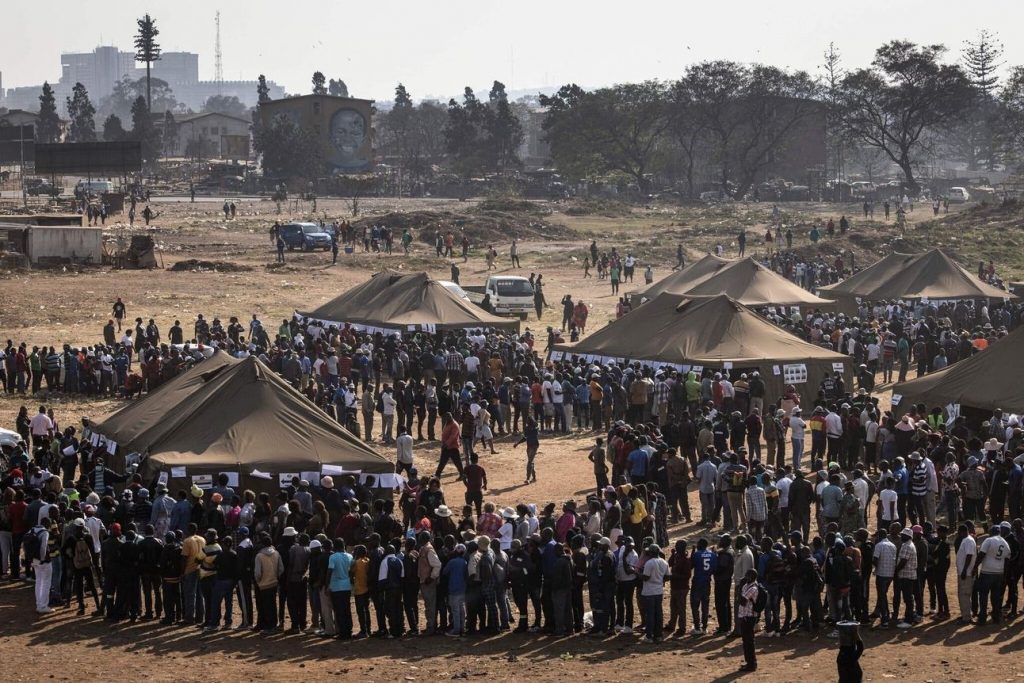
Former US Ambassador to Zimbabwe Charles A. Ray wrote prior to the election that Mnangagwa would use “every lever of state power at his disposal” to remain in office.
Problems with the electoral process could spell trouble for Zimbabwe’s struggling economy. “Macroeconomic uncertainty arising from erratic policymaking, runaway inflation, a weakening currency, rising borrowing costs and worsening electricity shortages will dampen growth in the short term,” according to the Economist Intelligence Unit. International lenders including the IMF and the World Bank previously said free and fair conditions were a condition for future loans
Libya’s central bank reunifies
Libya’s central bank announced it had reunified this week after almost a decade of separation spurred by civil war.
Since 2014, the oil-rich country’s bank has been divided between its internationally recognized headquarters in Tripoli and another branch in Benghazi affiliated with military leadership. The division mirrored a split between rival governments that emerged after NATO-backed forces toppled dictator Moammar Gadhafi in 2011.
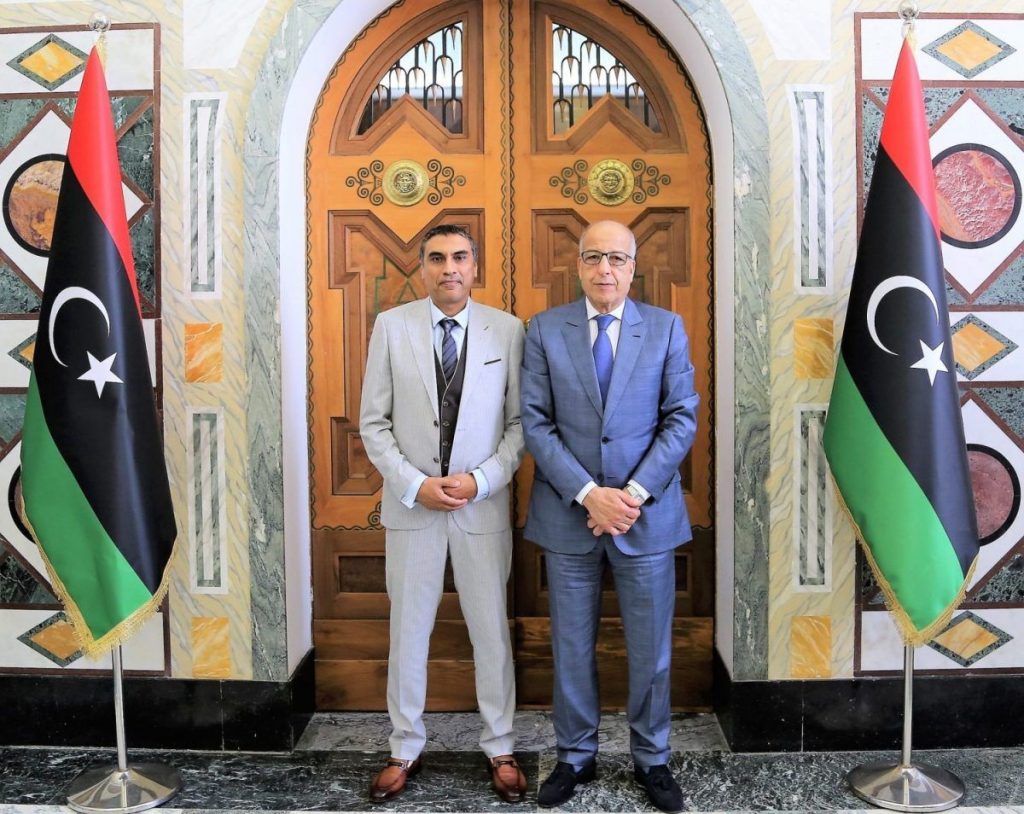
Both governments welcomed the reunification announcement, AP reports.
This is not the first time Libya’s central bank has announced plans to reunify, but similar announcements over the past five years never came to fruition, Libya Herald reports.
Kenya grants local communities a piece of the carbon credit pie
Lawmakers in Kenya’s National Assembly passed legislation to give local communities a percentage of the profit generated by emissions offset projects.
Communities involved with land-based projects will receive 40% of profit, while those involved with water-based initiatives such as mangrove forests will receive 25%, Bloomberg reports. The legislation is still awaiting approval from the country’s Senate and President William Ruto.
Global investor interest is increasing in African carbon credit projects, with countries seeking to make inclusive finance a pillar of such initiatives. Last week, Zimbabwe announced regulations that will require developers of carbon credit projects to invest a quarter of proceeds in local communities. Burundi, Gabon, Kenya, Malawi, Mozambique, Nigeria, Rwanda and Togo are all scaling up their own carbon credit markets too, according to the United Nations Framework Convention on Climate Change.
Asia
Two new prime ministers in Southeast Asia
In Thailand, months of political deadlock were finally broken this week when lawmakers in an 11-party coalition agreed to appoint the Pheu Thai party’s Srettha Thavisin as prime minister. Srettha, a real estate tycoon with no political experience, will take office amid widespread discontent with the Thai political system, the Washington Post reports.
Move Forward, the pro–democracy party that won the most votes in May elections, is not in the ruling coalition. Instead, Pheu Thai, previously an opposition party in favor of democracy, joined with parties that support Thailand’s powerful military.
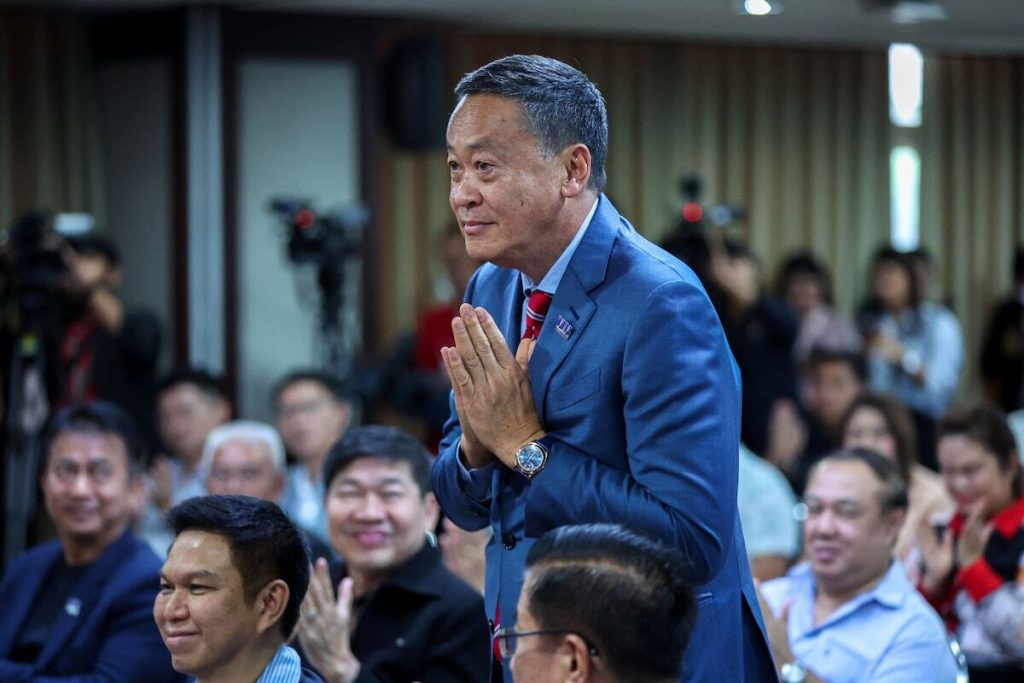
Cambodia’s Parliament officially endorsed longtime leader Hun Sen’s son as his successor. Little is known about Hun Manet’s vision for Cambodia, the Guardian reports, but his ascent to power appears to mark a broader generational transition in Cambodian politics. His cabinet is expected to be filledwith the children of elites, Nikkei reports.
Malaysia opens door for EV manufacturers
Malaysia is looking to increase foreign investment in its electric vehicle industry, CNBC reports.
Malaysia’s Prime Minister Anwar Ibrahim said the country was open to both Western and Chinese investment. Last month, market leader Tesla announced that it would establish a regional headquarters in the country. Chinese automaker Geely previously announced that it would expand its Malaysia operations. For both companies, Malaysia granted exemptions to typically strict foreign investment rules.

Neighboring Indonesia has also sought to expand its EV production. Earlier this month, Jakarta said it would eliminate import duties for EV makers who committed to producing 40% of vehicle content in Indonesia by 2026, Reuters reports. The country plans to produce 600,000 electric vehicles per year by 2030, about 100 times more than it sold in the first half of this year.
Did someone forward this to you? Subscribe at FrontierMarkets.co
Middle East
Saudi Arabia launches $200 million fund to invest in local high-tech startups
Saudi Arabia this week unveiled a new $200 million fund through the King Abdullah University of Science and Technology (KAUST) to “enhance economic diversification and contribute to the creation of high-quality technical jobs” by investing in early-stage technology startups. The fund is one part of a three-part strategy on technology development, the other two being a new institute to support commercialization, and a realignment of research centers with “national priorities for research, development, and innovation.”
The new fund will reportedly collaborate with companies including Aramco, Sabic, Acwa Power, IBM, Dow and Boeing, and focus on financing applied research in health and wellness, sustainable development, energy and industrial leadership, and “economies of the future”—diversification efforts in-line with the Kingdom’s broader Vision 2030 economic strategy.

According to Fast Company, the fund will also work alongside academic and commercial companies based in China’s Shenzhen on research in aerospace, robotics, and microelectronics.
Pressure grows in Syria as anti-government protests spread to Aleppo
Demonstrations in southern Syria over new austerity measures have increased in intensity, with protests now spreading to Aleppo, Syria’s largest city, Al Monitor reports. Protests have centered on the deteriorating state of Syria’s economy, corruption, and rising fuel prices.
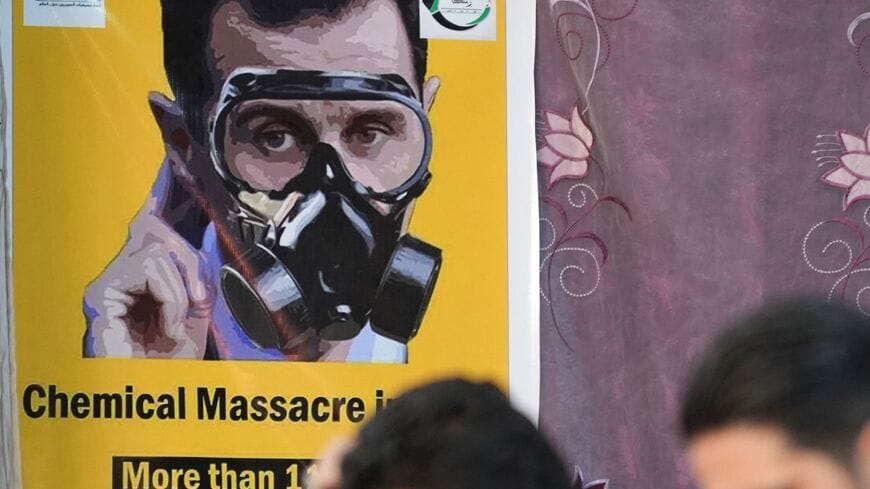
According to AP, protesters this week raided ruling party Ba’ath offices and blocked highways in southern Syria without an immediate government response. The UN’s Special Envoy for Syria says that in the past months, despite diplomatic normalization with the Arab League, “a very bad economic situation has got even worse,” once again driving popular anger at the Assad regime.
Spiritual leaders in the Druze community lent support to the protests this week but stopped short of endorsing calls for President Bashar al-Assad’s resignation as he was burned in effigy in Suwayda on Wednesday. Syria’s ally Iran, meanwhile, is preparing for fresh protests ahead of the one-year anniversary of the Mahsa Amini protests by rounding-up activists and relatives of killed protestors in an attempt to forestall any possible action.
Europe
Retail investors drive sharp growth in Turkey’s stock market
A sharp increase in retail trading has propelled Istanbul’s stock exchange to outperform larger European counterparts such as London, Frankfurt, and Milan in attracting initial public offerings (IPOs) this year. So far, 30 companies have collectively raised $1.9 billion, catapulting the exchange into the top 10 global IPO destinations.
Turkey’s success reflects the growing influence of local retail investors who are increasingly turning to equities in search of returns to combat persistent inflation and a weakening lira, as foreign capital exits due to concerns over unconventional economic policies.

The number of individual investors in Turkey’s equities market has quadrupled since the beginning of 2019 to 5.1 million. These retail investors now hold 38% of the overall stock market, contributing to a remarkable 318% gain in the benchmark Bist 100 index since the start of 2022.
This surge in retail participation has created a domino effect, prompting more mid-size enterprises to consider going public.
Latin America
Anti-corruption liberal wins Guatemalan presidency
Bernardo Arévalo, a center-left anti-corruption figure, won Guatemala’s presidential race this week, voted in by a population that has grown increasingly disillusioned with the political establishment. Arévalo, a former diplomat, secured 58% of the vote, defeating former First Lady Sandra Torres, who garnered 37%. Arévalo had framed the election as a referendum on democracy in Central America’s largest economy.

Despite winning the election in the face of a flurry of alleged attempts to interfere with the election process, Arévalo’s challenges are far from over. He will face a challenging governance landscape with limited representation in Congress and ongoing legal challenges against his party.
Building alliances, securing support from social movements and the private sector, and delivering on his promises to combat corruption and improve governance will be critical for his tenure.
Ecuadoreans move to rein in environmentally damaging extractive sectors
Ecuadoreans have voted solidly in favor of protecting a tract of the Amazonrainforest from oil extraction, the Guardian reports. In a referendum held alongside the presidential first-round election last weekend, almost 60% voted to stop new oil drilling in the Yasuní national park—one of the most biodiverse regions on the planet.
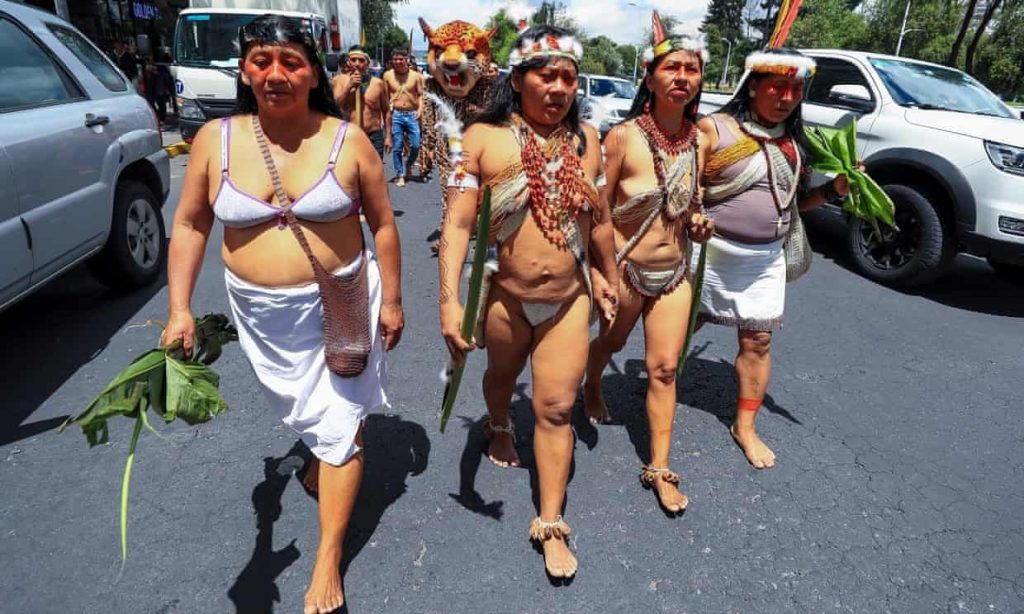
Voters also supported a move to stop mining in an area close to the capital Quito, the FT reports.
No candidate won a clear majority in the presidential vote, so two of them—Luisa González, a protege of Ecuador’s leftist former president Rafael Correa, and Daniel Noboa, the son of one of the country’s richest men—will face a runoff election in October.
Argentina seeing dollarization by desperation
Argentina appears to be quietly dollarizing as citizens lose faith in the country’s peso amid soaring inflation, Bloomberg reports. In sectors such as technology and finance, employees are insisting on being paid in dollars, and companies such as MercadoLibre are increasingly complying.
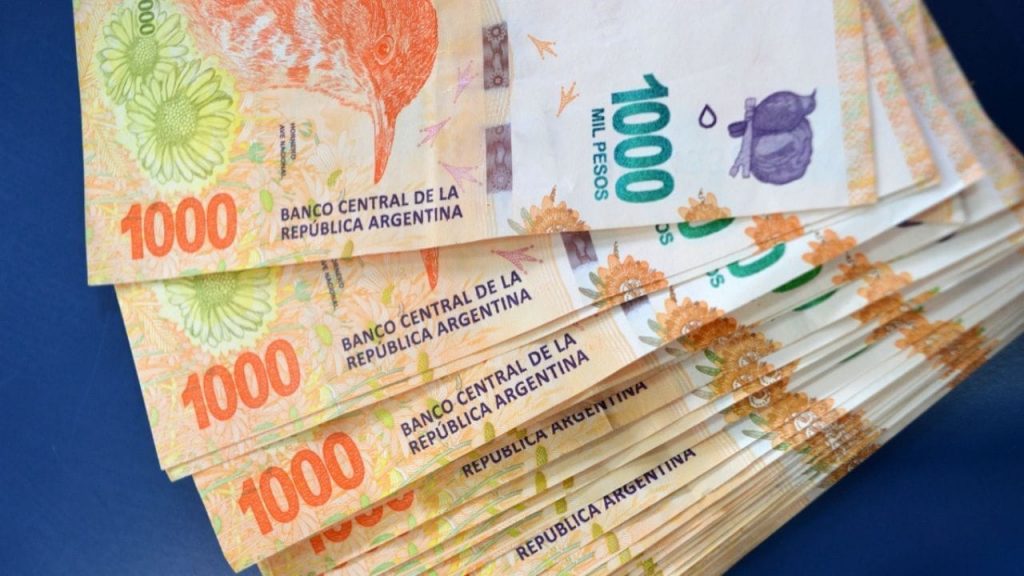
Even in everyday transactions, from renting apartments to hiring lawyers, people reportedly prefer to use the greenback over the peso.
Consumption in Argentina is also dropping sharply, MercoPress reports. In July, consumption fell by almost 16% and early figures for August suggest the trend is continuing.
According to the official statistics office, Indec, the consumer price index has risen 60.2% so far this year, and is up 113.4% over the past 12 months.
Global
BRICS expansion plan raises prospects of further de-dollarization
The BRICS emerging market bloc, consisting of Brazil, Russia, India, China, and South Africa, has embarked on its most significant expansion effort to date, inviting Argentina, Egypt, Ethiopia, Iran, Saudi Arabia and the UAE to join. The move could be considered a victory for China, which has been trying to transform BRICS into a counterweight to the G7. The inclusion of Iran and Saudi Arabia, both significant oil producers, follows Beijing’s successful mediation between the Middle Eastern nations.
- How BRICS became a real club and why others are joining
- BRICS bank aims to increase local-currency borrowing to 30%
- China’s slowdown has an upside for BRICS bloc dealmakers
In addition to trying to expand BRICS, its leaders are hoping to reduce their reliance on the US dollar in trade among their economies. This move reflects a global trend toward using local currencies and alternative financial arrangements, though it falls short of the idea of creating a common BRICS currency as previously suggested by some leaders.
What we’re reading
Roam inaugurates a factory in Kenya’s capital to manufacture 50,000 e-motorbikes a year (Afrik21)
Niger’s ‘endurance under sanctions is limited’ (The Africa Report)
African Union suspends Niger until ‘the effective restoration of constitutional order’ (AP)
West Africa’s ECOWAS rejects Niger junta’s proposed three-year delay for elections (Reuters)
Ghana’s central bank boss under pressure to resign (The Africa Report)
How Ethiopia’s Amhara breadbasket became its biggest challenge (Semafor)
Somalia orders TikTok and Telegram shutdown (Voice of America)
Saudi border guards ‘killed hundreds of Ethiopian migrants’ (Reuters)
Egypt struggles with rising interest rates and currency volatility (FrontierView)
Prigozhin’s death leaves Wagner’s African operations in limbo (FT)
Sri Lanka enters a new era of post-pandemic austerity (Nikkei)
Taliban warn Pakistan against targeting militants in Afghanistan (Bloomberg)
Pakistan eyes deeper discounts as Russian oil imports hit snag (Nikkei)
Australia to upgrade Vietnam ties, foreign minister says (Tuoi Tre News)
UN urged to ‘cut ties’ with Myanmar coup leaders after Griffiths visit (Al Jazeera)
Thai bank debuts mobile remittances to Myanmar (Nikkei)
Chinese lawyer’s arrest in Laos highlights repression (NY Times)
Indonesian civil servants ordered to work from home due to pollution (Nikkei)
Indonesia’s Jokowi deepens Global South ties in Africa tour (Nikkei)
Kyrgyz-Kazakh relations strained amid water cutoff and border traffic jam (Radio Free Europe)
Georgia condemns Medvedev’s comments on annexing breakaway regions (Radio Free Europe)
NATO expands support role in Iraq (UK Defence Journal)
Iran’s booming oil flows surge above 2m barrels a day (Bloomberg)
Iranian photojournalist arrested at Afghan airport by Taliban (International Federation of Journalists)
US ‘concerned’ by Turkey’s threat to silence VoA (Balkaninsight)
Ukraine nears deal with global insurers to cover grain ships (FT)
Russia moves toward a closed economy (Bloomberg)
Chinese-backed port project in Peru to be the ‘gateway from South America to Asia,’ official says (ABC)
Cuban leader reaffirms support for Angola (Mercopress)
Central America parliament expels Taiwan, makes China permanent observer (Reuters)
Brazil pitches plan to guarantee exports to Argentina in yuan (Bloomberg)
Paraguay reforms finance ministry (Mercopress)
US in talks with Venezuela over sanctions relief in return for fair elections (Bloomberg)




